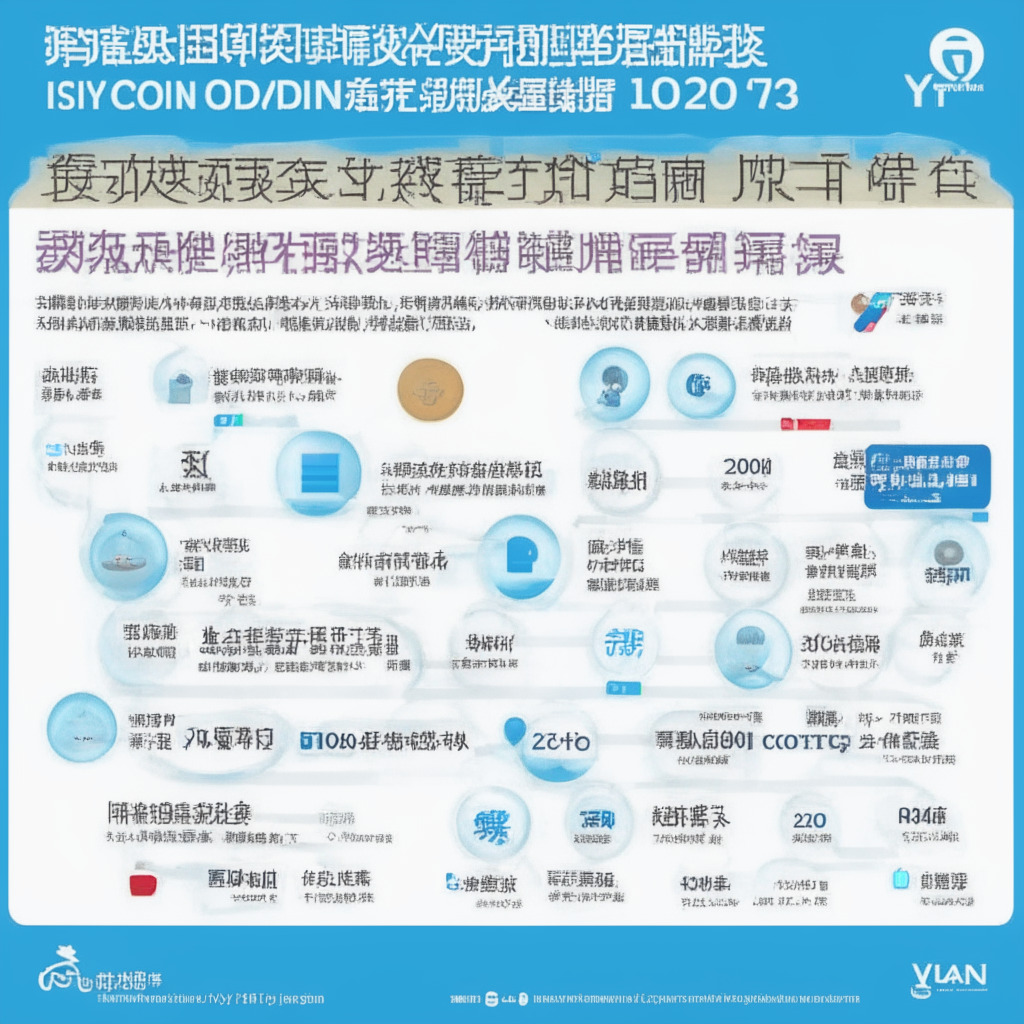Sen. Tim Scott announces his bid for US president with a focus on establishing a digital assets regulatory framework that safeguards consumers and encourages innovation. As the ranking member of the Senate Banking Committee, Scott aims to develop a comprehensive approach covering blockchain, digital assets, and consumer protection, emphasizing consumer safety, accessibility, and industry growth.
Search Results for: First Digital
Bowling Achievements Turned NFTs: Pros, Cons & the Future of Digital Awards
The Professional Bowlers Association (PBA) and Bowlero have launched League Bowler Certification Awards, tokenized achievements in the form of non-fungible tokens (NFTs), on the Avalanche blockchain. These soulbound tokens will be airdropped to around 300,000 Bowlero league participants to recognize their bowling accomplishments, paving the way for blockchain integration in the sports industry.
Marathon Digital’s Strategy in Bear Market: Navigating Price Protection and Energy Efficiency
Marathon Digital Holdings navigates bear market with a price protection strategy and increased hash rate, achieving a quarterly record of 2,195 BTC mined. The company’s energy-efficient fleet and foreign partnerships, like the joint venture in Abu Dhabi, help position it for ongoing expansion.
eNaira’s First Year: Adoption Challenges, Competition with MMOs, and Remittance Solutions
Nigeria’s eNaira marks its first anniversary, with the IMF examining its performance and highlighting areas for improvement. Although praised as the second central bank digital currency (CBDC), slow adoption rates and delayed goals pose challenges. The IMF suggests innovative strategies and leveraging existing market networks to promote adoption and address remittance limitations.
Stablecoin Regulation Debate: US Lawmakers’ Divide and the Future of Digital Dollar
The US House Financial Services Committee’s digital assets panel debated on stablecoin regulations, highlighting divides between Republican and Democratic ideas. Both parties do align in addressing risks to consumers and maintaining the US dollar’s role in global commerce. Lawmakers are paying heightened attention to stablecoin regulations and wider crypto topics, marking progress in US oversight of the industry.
Chinese State-owned Firm Enters Hong Kong’s Digital Asset Hub: Pros, Cons, and Main Conflicts
Chinese state-owned real estate company Greenland Holdings plans to join Hong Kong’s digital asset hub by creating a new unit to acquire virtual asset trading licenses. This move supports Hong Kong’s efforts to become a prominent digital assets trading center and diversifies Greenland Holdings’ business in the growing market.
Ripple CBDC Platform: Revolutionizing Central Bank Digital Currencies or Risking Control?
Ripple is launching a unique platform for central bank digital currencies (CBDCs), empowering governments and financial institutions to design and develop digital currencies with ease. Leveraging Ripple’s Private Ledger, the platform enables instant settlement for domestic and cross-border payments, improving user experience in transactions.
Bankrupt Voyager Digital’s $1.33B Crypto Liquidation Plan: Relief for Customers or Added Complications?
The U.S. Bankruptcy Court approved Voyager Digital’s liquidation plan, enabling the return of approximately $1.33 billion in crypto to customers. This marks the third bankruptcy plan for Voyager, following Binance.US’s withdrawal from a previous agreement. Initial customer payments will be made in crypto or cash, with future litigations possibly impacting further distributions.
First eAUD Foreign Exchange Transaction: Future of CBDCs and Pros-Cons Debate
Australia successfully completed its first foreign exchange transaction using eAUD, marking a milestone in the country’s central bank digital currency (CBDC) development. The eAUD transaction showcased quicker settlement and potential benefits over traditional FX, remittance networks, and fiat currencies. The ongoing pilot explores various eAUD use-cases, driving the world closer to CBDC integration in financial systems.
First State-Owned Chinese Company Applies for Hong Kong Crypto License: Pros, Cons, and Impact
Greenland Financial Technology Group, a subsidiary of Greenland Holdings, becomes the first state-owned Chinese company to apply for a virtual asset trading license in Hong Kong, with plans to establish a dedicated company for virtual asset trading, including cryptocurrencies, NFTs, and carbon emission-related products. This move signifies the significant potential of Hong Kong’s virtual asset market and its potential as a global crypto hub.
Anchorage Digital Integrates Snapshot: Balancing Convenience and Decentralization Debate
Anchorage Digital integrates the off-chain, gasless multi-governance client Snapshot, allowing its token-holding community to participate in governance proposals without hefty gas fees. This move aims to bring convenience and accessibility to users amid growing cryptocurrency popularity, while sparking debates over balancing convenience against decentralization and security guarantees.
Digital Yuan Loans for Tech Startups: Transforming Finance or Risking Instability?
The Hunan Province in China has introduced digital yuan loans for tech startups, as the country explores central bank digital currency (CBDC) financing options. With real-time online lending, digital yuan can save time and handling fees, promoting small businesses and showcasing CBDC potential in lending. However, potential risks, such as market volatility and cybersecurity, must be addressed diligently.
BNY Mellon’s Bold Move: Embracing Blockchain, Tokenization, and Digital Assets in Banking
BNY Mellon takes significant strides towards digital assets, focusing on custody and clearing services, implementing blockchain to modernize infrastructure, and exploring tokenization for democratizing investments. Emphasizing long-term vision and risk management, the bank aims to expand its offerings and adapt to emerging technologies.
AI-Generated Content Scandals: Trustworthiness of News in the Digital Age
The Irish Times faced scrutiny after publishing an AI-generated article, raising concerns about digital news reliability and the need for stronger controls. The incident highlights challenges news organizations face in maintaining authenticity amidst increasing AI-generated content prevalence.
Texas Bill of Rights Amendment: A Leap Forward for Digital Currencies or Risky Endeavor?
Texas legislators voted overwhelmingly in favor of amending the state’s Bill of Rights to recognize the right of individuals to possess and utilize digital currencies. Bill HJR 146 seeks to protect Texans’ financial privacy and shield them from the unstable dollar, emphasizing the significance of alternative currencies. Critics argue that embracing digital currencies presents market volatility risks and security concerns.
Cryptocurrency Downturn: Marathon Digital’s 12% Drop and the Regulatory Struggle Ahead
Marathon Digital experienced a 12% drop despite reporting better-than-expected Q1 results, possibly due to an SEC subpoena regarding potential securities law violations. As cryptocurrency-linked sector faces a downturn, companies like Marathon and Hut 8 Mining adapt and diversify their business models amid regulatory scrutiny.
Marathon Digital Holdings: SEC Subpoena, Financial Results, and Blockchain Future Pros & Cons
Bitcoin mining firm Marathon Digital Holdings is facing an SEC subpoena regarding potential violations of federal securities laws, specifically transactions with related parties and its Montana data center facility. Despite this, the company reported a reduced net loss and record Bitcoin production in Q1 2023, with its CEO maintaining an optimistic outlook for the year.
Navigating Growth and SEC Scrutiny: The Dual-Faced Journey of Marathon Digital Holdings
Marathon Digital Holdings reports better-than-expected Q1 loss per share due to a surge in Bitcoin prices and increased production. However, the company faces another SEC subpoena investigating potential violations of federal securities law. Despite challenges, Marathon continues to focus on growth, expansion, and debt reduction.
SEC Subpoena to Marathon Digital: Balancing Blockchain Growth and Regulatory Compliance
Marathon Digital Holdings, a major US-based crypto mining company, has received a subpoena from the SEC regarding Montana Data Center and potential securities laws violations. With regulatory compliance in the spotlight, adhering to standards can foster a secure environment, fostering trust and adoption in the cryptocurrency industry.
Galaxy Digital’s Q1 Profit Rebound: Potential Bull Run or Cautious Skepticism Needed?
Galaxy Digital, led by crypto bull Mike Novogratz, reported Q1 profits of $134 million, falling short of analysts’ expectations. Despite missing estimates, the earnings reflect substantial improvement from the previous quarter and a strong liquidity position. Galaxy Digital is well-prepared to capitalize on market opportunities, but stakeholders should remain cautious due to the digital asset industry’s unpredictability.
Middle East’s First Immersion-Cooled Crypto Mining: Is It The Future Amid Potential US Taxation?
In partnership with Zero Two, Marathon Digital plans to establish the Middle East’s first large-scale immersion Bitcoin mining operation, utilizing excess energy in Abu Dhabi for a sustainable approach. This pioneering venture might prompt a global shift towards eco-friendly solutions and infrastructure development in digital asset mining.
Europe’s First Compliant DeFi Bank and Stablecoin: Unstoppable Finance Embraces MiCA Rules
Berlin-based fintech startup Unstoppable Finance is preparing to launch Europe’s first compliant “DeFi-native bank” and a fiat-backed Euro-pegged stablecoin in line with the European Union’s MiCA guidelines. The team previously established Germany’s first regulated crypto exchange and founded Unstoppable Finance in 2021, known for its Ultimate DeFi wallet.
Crypto Market Rebound: Analyzing Galaxy Digital’s Q1 2023 Turnaround and Future Sustainability
Galaxy Digital reports a net income of $134 million for Q1 2023, a significant improvement from previous losses, highlighting the recovering cryptocurrency market. With assets under management rising, the industry’s potential for sustainable growth relies on cautious optimism, learning from past fluctuations, and emphasizing oversight and transparency.
Reintroduction of Digital Asset Anti-Money Laundering Act: National Security vs Crypto Privacy
Sen. Elizabeth Warren plans to reintroduce the Digital Asset Anti-Money Laundering Act, aiming to curb money laundering and terrorist financing in crypto. The bill focuses on law enforcement and national security, extending KYC requirements and prohibiting transactions with digital asset mixers.
Veloce’s VEXT Token: Empowering Community Governance in Digital Racing Media Network
Veloce, a leading digital racing media network, introduces the VEXT utility and governance token for decentralized control over major assets. Developed with MDRxTech, the token enables integration, transactions, and rewards within the Veloce ecosystem, further incorporating partners into a decentralized community.
Kenya’s Finance Bill 2023: Digital Asset Tax Debate and its Impact on Crypto Community
Kenya’s Finance Bill 2023 proposes a 3% tax on digital assets, including cryptocurrencies and NFTs, and a 15% tax on online content monetization. While some view this as official recognition of digital assets in Kenya, others argue it amounts to targeted harassment, with advocacy group Cryptocurrency Kenya calling for universal application of digital taxes.
Kenya’s 3% Digital Asset Tax Proposal: A Step Forward or A Hindrance to Crypto Adoption?
Kenya’s Finance Ministry proposed a 3% tax on digital asset transfers, hinting at a trend of taxing cryptocurrencies without formal regulation. This arises amid increased global adoption, highlighting the need for clear regulatory frameworks to ensure market stability, investor protection, and encourage blockchain industry growth.
El Salvador’s My First Bitcoin Program: Empowering the Masses or Facing Adoption Hurdles?
The El Salvador nonprofit program “My First Bitcoin” has raised over 1 BTC through global donations, expanding its Bitcoin Diploma program. Highlighting cryptocurrency’s potential to empower individuals and democratize financial access, the initiative has educated 6,000 students, paving the way for wider cryptocurrency adoption in developing countries.
SEC Drops Digital Asset Definition: Implications for Crypto Regulation and Investment
The SEC recently finalized new Form PF rules but chose not to adopt the previously proposed definition of “digital assets,” leaving the crypto community navigating a landscape of regulatory uncertainty regarding assets based on distributed ledger or blockchain technology.
SEC Withdraws Digital Asset Definition: Clarity Eludes Crypto Regulation
The SEC recently removed the first formal definition of “digital asset” from its latest hedge fund rule, explaining that the term is still under consideration. This comes amidst the commission’s ongoing efforts in addressing crypto regulation and integrating digital assets into existing rules. However, the lack of an official definition leaves room for debate among industry stakeholders.
Sotheby’s NFT Marketplace: A Boost for Digital Art or a Step Away from Inclusivity?
Sotheby’s expands its Metaverse platform by launching a blockchain-based NFT marketplace focused on secondary sales and curated digital art. This move, met with excitement and uncertainty, may bring added value to the NFT market or face challenges attracting sustained buyer interest amid a struggling NFT market.
Zimbabwe’s Golden Gamble: Pros and Cons of a Gold-Backed Digital Currency
The Reserve Bank of Zimbabwe (RBZ) plans to issue gold-backed digital tokens on May 8, […]































